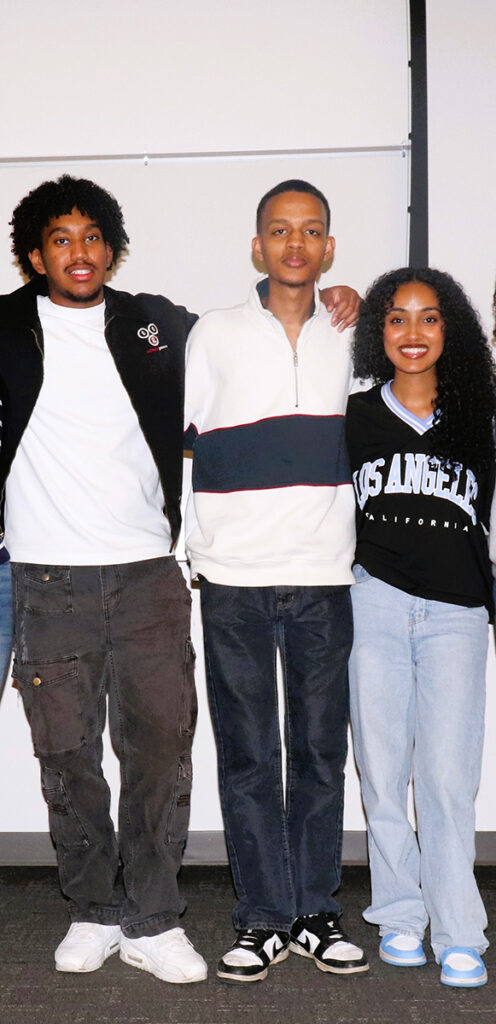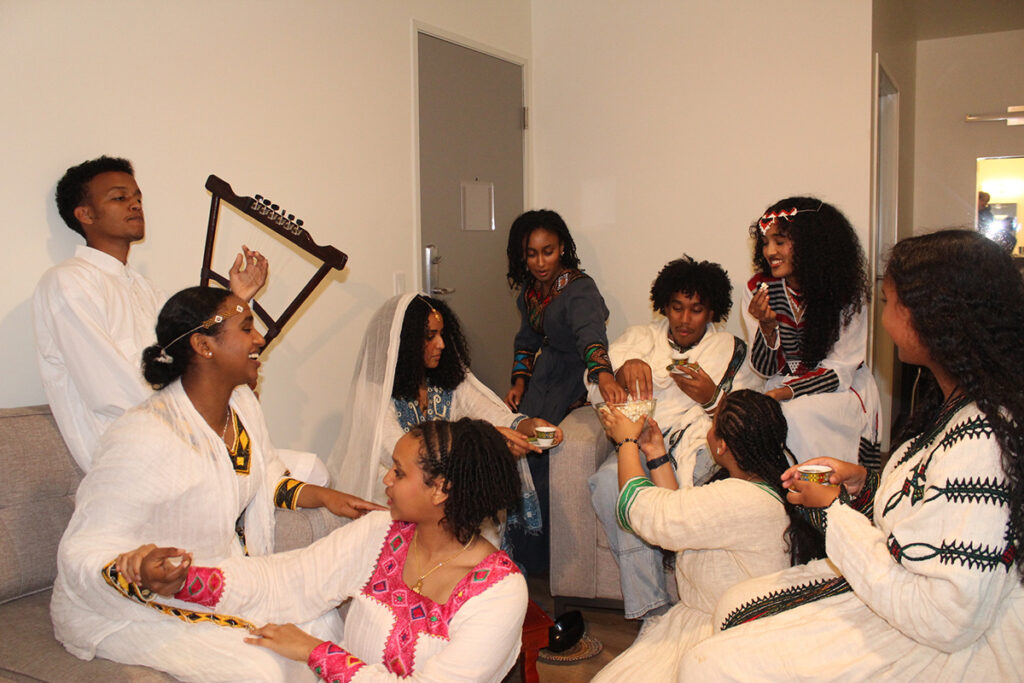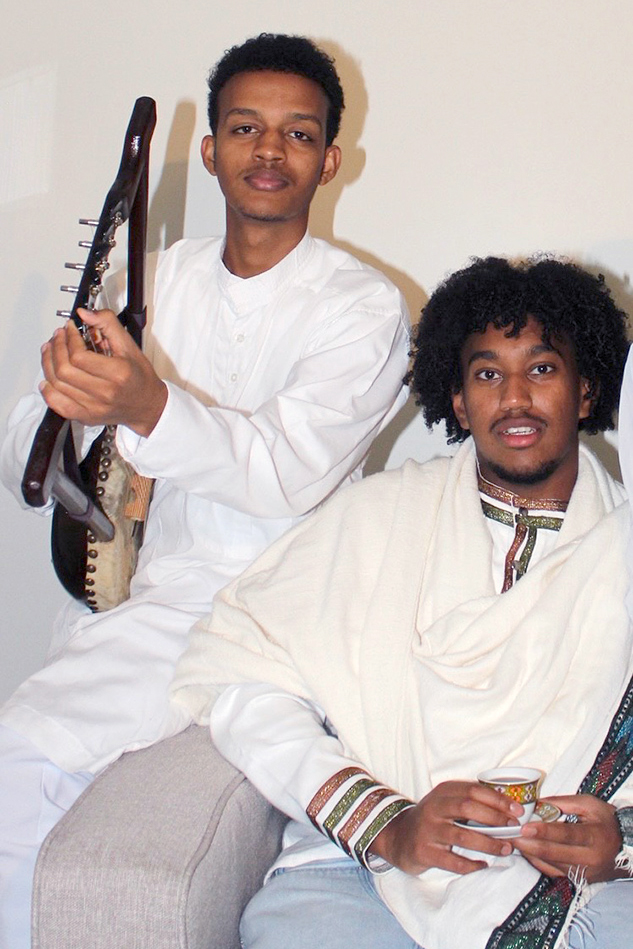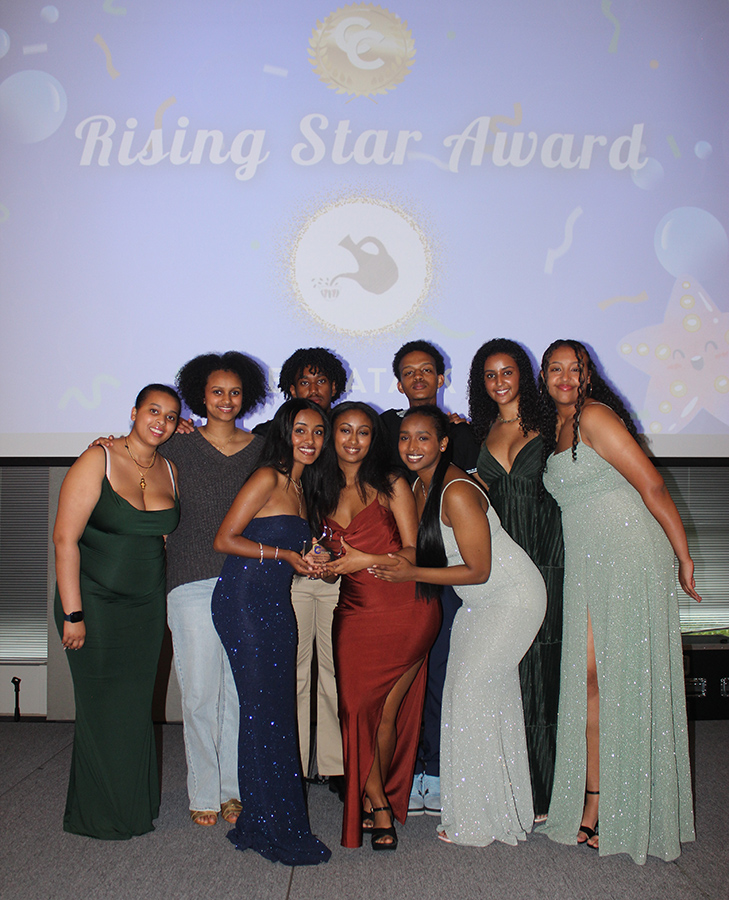East African students create community with coffee and conversation

Every morning, as students prepare for the day ahead, many reach for a cup of coffee to help them wake up.
But for three East African students at the University of Washington Bothell, their morning brew is more than a simple caffeine delivery device. It’s also a drink central to their communities. That’s why when they wanted to create a student club, they decided to dedicate it to drinking coffee.

Eskndr Tadesse, Business Administration
Koket Gebiremichael, Nursing
A common journey to UW Bothell
BunaTalk (or “coffee talk”) is a student club created by students Koket Gebiremichael, Yabsera Legesse and Eskndr Tadesse.
The three co-presidents share common stories when it comes to their early lives. Each of them immigrated to Washington at a young age. For Yabsera Legesse’s family, the motivation for his parents to emigrate from Ethiopia was to give him and his siblings a better life. “They realized that for us, there’s wasn’t going to be a lot of opportunities for us to succeed [in Ethiopia],” Legesse said. “Even if we went to school and college, life was never going to be that good for us.”
When each of the now co-presidents arrived in the United States, they found it hard to relate to others at school. Rather, they found connection in their local East African community. Their families connected with other families — often over cups of coffee.
After high school, when the three students were deciding on where to go to university, UW Bothell was a top choice as they wanted to stay close to their families. “That’s a big theme within East African communities,” said Gebiremichael, also from Ethiopia. “Our family is the top priority for us, and so being away from them isn’t always easy.”
When the three students arrived on campus, they realized there were many other East African students — but there was no easy way for all those students to connect. Their student club, BunaTalk, was the answer.

A cup of buna in the morning
The history of coffee goes back thousands of years to the Oromo people of East Africa who first cultivated the coffee bean. One popular legend says coffee was discovered by a shepherd who noticed his goats getting a jolt of energy when they munched beans from a specific bush. This led to the shepherd trying the beans himself and then passing his discovery to local monks who chewed coffee to keep them awake during prayers. Over time, the chewing of beans evolved into the ceremonial brewing of coffee.
In modern times, drinking coffee is central to “Habesha” communities, a term broadly used to describe people of Ethiopian and Eritrean heritage. Tadesse, from Eritrea, is quick to point out the differences in coffee culture between East Africa and the U.S.
“In Western culture, coffee is just a pick-it-up-and-go in the morning thing. It’s something you do for five minutes,” he explained. “But coffee in East African culture is a whole ceremony. When the coffee usually comes out, you know you’re going to be staying there for a while, for conversations about culture, politics and social norms.”
Tadesse explained that in a traditional coffee ceremony, it can take two to three hours to prepare the coffee. Families roast their own coffee beans, grind the beans by hand and each person takes a turn smelling the coffee. Coffee is a way for East African families to connect with the larger community.
Tadesse says, “It’s where people come together to talk about anything and everything,” he said.

Habesha buna conversations
One of Legesse’s earliest memories of the coffee tradition was speaking with his father about their extended family. His father explained how his grandfather had grown up in the mountain regions of Ethiopia and had worked hard to go to law school to become a paralegal. Legesse said those conversations inspired him to major in Law, Economics & Public Policy and eventually to become an attorney.
An important conversation that Tadesse had over coffee was around what to do after high school. His extended family gathered over the Christmas holiday, and at the time Tadesse had a hard time deciding whether to go to a community college or a university. When the topic came up during buna, the family laid out the pros and cons of the decision, and his cousins shared their experiences of going to college.
“When you have a coffee at hand, that’s when it’s your time to speak, almost like you’re given a mic.”
Eskndr Tadesse, Business Administration
“When you have a coffee at hand, that’s when it’s your time to speak, almost like you’re given a mic,” Tadesse said. “And my cousin was talking about college and what her experiences were like. That’s one of the main things that helped me decide what path to take.”
And one of the reasons the BunaTalk club co-presidents said they came to UW Bothell is that they knew the University had a large group of Habesha students.
Creating a community for East African students
When they spoke about how hard it was to connect with that community, the three agreed they wanted to create a space where they could share their culture with other students.
Gebiremichael noted that she wanted a place where people could have the same meaningful conversations that her parents and grandparents were having over coffee.

For Legesse, a priority was simply to have a space for people to meet and get to know each other. “Being Habesha is very social, and not having a social space where people could talk to each other and be among people from their own countries and culture was hard,” he said.
“Especially in high school, I didn’t see a lot of Habeshas, and it always felt like I was alone,” he added. “I wanted to create a community where people don’t feel like that. If they need to talk to someone, they have people who look like them, who can welcome them and understand where they come from.”
When the group realized there was a need for a more community, they decided to make it happen. They started with an event where people could meet in a classroom to enjoy food and drinks.

BunaTalk’s first year of connection
Planning that first event, the three club co-presidents were afraid nobody would turn up. But when the day came, more than 100 students arrived, and they realized there was a real thirst for buna — and all it means — at UW Bothell.
In the club’s first year, BunaTalk held six events, including a volunteer day, a traditional coffee ceremony, a game night, a friendship mixer and a basketball tournament. For this successful first year, the club recently received the Rising Star Award during UW Bothell’s annual Club Council Recognition Banquet.
Despite some big ideas for next year and new members of leadership, the group said they won’t forget what brought them together to begin with: a cup of coffee.
As Tadesse explained, “There’s no community without buna.”